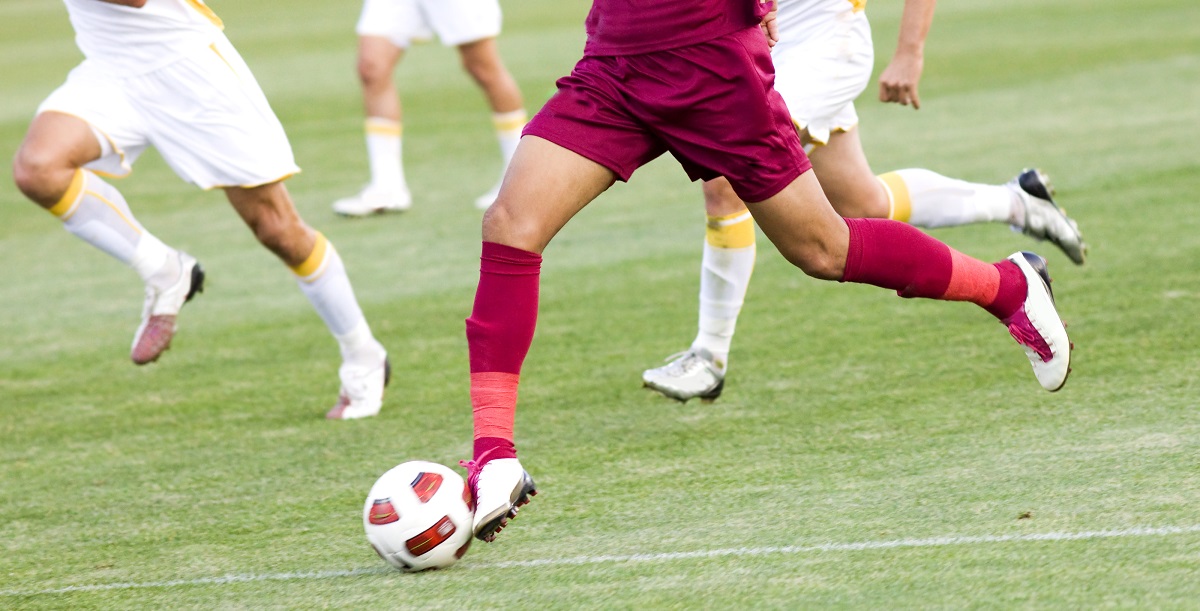
Transgender footballer Hannah Mouncey's two-year battle to be admitted as an AFLW player highlighted that LGBTIQ+ inclusion in Australian sport has become a confused and contentious issue - but Flinders University researchers have presented a blueprint for how matters can be clarified and improved at all levels of clubs and coaching.
Flinders University's Sport, Health, Activity, Performance and Exercise (SHAPE) Research Centre has submitted a commissioned report to Inclusive Sport South Australia and the Office for Recreation, Sport and Racing, identifying both the barriers and enablers in sport for the LGBTIQ+ community.
Professor Murray Drummond, director of the SHAPE Research Centre, says the report includes a holistic approach for reducing homophobia and 'homohysteria' within sporting environments, but more importantly provides a pathway for sports clubs to promote inclusion.
"There is going to be a cultural shift in sports - the introduction of marriage equality signals that this change has started - so clubs need to develop strong policy and practises for the inclusion and participation of the LGBTIQ+ community," says Professor Drummond.
The report shows that almost 40 per cent of the LGBTIQ+ respondents who participate in sports have felt unsafe or vulnerable in a sporting environment as a result of their gender identification or sexuality.
The report, which was presented to Inclusive Sport SA this week, carries 15 recommendations that Professor Drummond hopes will be taken seriously and acted upon by sports administrators and the State Government.
"These are issues that clubs are willing to have discussions about and want to address, but they have no idea how to make things happen in the right way. They are mostly a group of volunteers who may not have had training in such matters, so they need guidance," says Professor Drummond.
"For instance, it's interesting that while only three transgender people were interviewed for this report, the issue of how to properly address the inclusion of transgender people in sport was brought up by many more participants."
Dr Drummond believes a key solution is developing online tools providing information that can direct coaches and sports administrators on how to appropriately address the issues, in an informed and an affordable way.
"What is needed now is strong leadership from sports clubs and the over-arching sport administration bodies, to show that inclusion is a serious matter," he says.
The report recommends that the CEOs, Presidents and Chairs of sports organisations should promote inclusive practices by writing into position descriptions and criteria items relating to inclusion, to help develop a top-down inclusive approach throughout sports organisations.
Other recommendations include educating all coaches about the needs of LGBTIQ+ individuals who may enter the club and seek to participate.
John Cranwell, Inclusive Sport SA CEO, says, "This report is the first step in a larger engagement process and understanding to better include the LGBTIQ+ community in local sport. While many of the recommendations are aimed at high level change, there are clear steps that the sector can prioritise and action".
Recognising that educating individuals, clubs and organisations will occur financial costs, the report recommends State Government funding to facilitate educational tools, address specific areas of need – such as appropriate change room facilities and development of alternative uniforms - and creating at least one full-time position to assist clubs and organisations across South Australia implement inclusive practice and policies.






